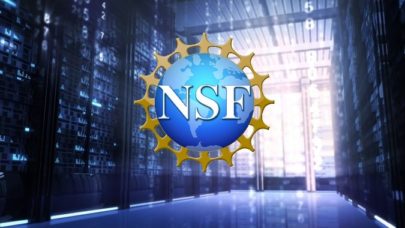
Roadmap for Building a US National AI Research Resource Released
January 31, 2023
Last week the National AI Research Resource (NAIRR) Task Force released its final report and roadmap for building a national AI infrastructure to include comput Read more…

Biden Issues Executive Order Bolstering National Quantum Initiative and Cybersecurity
May 4, 2022
President Joe Biden today issued an Executive Order and a National Security Memorandum boosting the national focus on quantum information sciences (QIS), including quantum computing and cybersecurity concerns. There is currently a global race heating up to leverage QIS for economic and security purposes. The U.S., China, Europe, Japan, the U.K., and many others have mounted well-funded, expanding efforts... Read more…

The Blueprint for the National Strategic Computing Reserve
October 12, 2021
Over the last year, the HPC community has been buzzing with the possibility of a National Strategic Computing Reserve (NSCR). An in-utero brainchild of the COVID-19 High-Performance Computing Consortium, an NSCR would serve as a Merchant Marine for urgent computing... Read more…

GAO Assesses National Strategic Computing Initiative Progress
October 5, 2021
The U.S. National Strategic Computing Initiative (NSCI), launched in the summer of 2015 by executive order (EE) of the Obama Administration, was intended to be Read more…

A Second Bill to Reshape the National Science Foundation Filed
March 29, 2021
Change is (again) in the wind for NSF. Last week the House Science Committee introduced a bill – NSF Foundation for the Future Act – which would add a direc Read more…

President-elect Biden Taps Eric Lander and Deep Team on Science Policy
January 19, 2021
Last Friday U.S. President-elect Joe Biden named The Broad Institute founding director and president Eric Lander as his science advisor and as director of the Office of Science and Technology Policy. Lander, 63, is a mathematician by training and distinguished life sciences... Read more…

U.S. CTO Michael Kratsios Adds DoD Research & Engineering Title
July 13, 2020
Michael Kratsios, the U.S. Chief Technology Officer, has been appointed acting Undersecretary of Defense for research and engineering. He replaces Mike Griffin, Read more…

$100B Plan Submitted for Massive Remake and Expansion of NSF
May 27, 2020
Legislation to reshape, expand - and rename - the National Science Foundation has been submitted in both the U.S. House and Senate. The proposal, which seems to Read more…

- Click Here for More Headlines

Whitepaper
How Direct Liquid Cooling Improves Data Center Energy Efficiency
Data centers are experiencing increasing power consumption, space constraints and cooling demands due to the unprecedented computing power required by today’s chips and servers. HVAC cooling systems consume approximately 40% of a data center’s electricity. These systems traditionally use air conditioning, air handling and fans to cool the data center facility and IT equipment, ultimately resulting in high energy consumption and high carbon emissions. Data centers are moving to direct liquid cooled (DLC) systems to improve cooling efficiency thus lowering their PUE, operating expenses (OPEX) and carbon footprint.
This paper describes how CoolIT Systems (CoolIT) meets the need for improved energy efficiency in data centers and includes case studies that show how CoolIT’s DLC solutions improve energy efficiency, increase rack density, lower OPEX, and enable sustainability programs. CoolIT is the global market and innovation leader in scalable DLC solutions for the world’s most demanding computing environments. CoolIT’s end-to-end solutions meet the rising demand in cooling and the rising demand for energy efficiency.
Download Now
Sponsored by CoolIT
Whitepaper
Transforming Industrial and Automotive Manufacturing
Divergent Technologies developed a digital production system that can revolutionize automotive and industrial scale manufacturing. Divergent uses new manufacturing solutions and their Divergent Adaptive Production System (DAPS™) software to make vehicle manufacturing more efficient, less costly and decrease manufacturing waste by replacing existing design and production processes.
Divergent initially used on-premises workstations to run HPC simulations but faced challenges because their workstations could not achieve fast enough simulation times. Divergent also needed to free staff from managing the HPC system, CAE integration and IT update tasks.
Download Now
Sponsored by TotalCAE
Advanced Scale Career Development & Workforce Enhancement Center
Featured Advanced Scale Jobs:
HPCwire Resource Library
HPCwire Product Showcase
© 2024 HPCwire. All Rights Reserved. A Tabor Communications Publication
HPCwire is a registered trademark of Tabor Communications, Inc. Use of this site is governed by our Terms of Use and Privacy Policy.
Reproduction in whole or in part in any form or medium without express written permission of Tabor Communications, Inc. is prohibited.
























